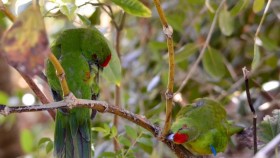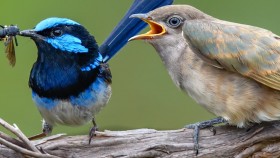Patrick Meir
Research
My research is focused on forests, particularly the functioning of tropical forest ecosystems and how this varies in relation to climate, soils and species. Tropical rain forests are frequently under threat, but still cover substantial areas of the globe. They represent a hugely important resource for humanity that we are only beginning to understand. I have been lucky enough to study them in several settings. Whilst I have a principal long-term interest in drought and the carbon cycle, I also study the effects on forests of warming, CO2, nutrients and land use change. It has been fun recently to begin to be able to address how biodiversity intersects with function in trees and soils, and also to consider how remote sensing methods can advance our understanding of tree architecture and physiology. The biggest challenge of my career has been imposing an experimental drought on a hectare of remote Amazonian rainforest; this research is now entering its 17th year.
Teaching/mentoring
I enjoy teaching face to face in class, but especially in the field. It’s a two-way creative process, as you encounter different perceptions and knowledge bases. I have been privileged to be awarded the odd teaching prize from the undergraduate student body. I also get a lot out of fostering a collaborative and collegial research environment: team-work is an important but also very enjoyable aspect of science. I’ve worked with some really excellent research students and post docs and seeing them find success in their careers is one of the best parts of the job.
What’s good about research and do you have a science hero?
As my daughter would say when she was little, ‘I like doing finding-out stuff’. New discoveries are exciting. Working on forest ecosystems, especially in the tropics, is also important for me: tropical forests are beautiful, diverse, understudied, threatened and they influence many lives, both close by and globally. As to a ‘hero’, I am not entirely comfortable with the phrase, but the German polymath Alexander von Humboldt (1769-1859) did some very cool stuff exploring the New World tropics. What he saw led him to lay down the first integrated ideas connecting variation in biota, soil and climate, the beginnings of the subject of biogeography. Early in his career, he started an idea that a hundred years later would lead to the concept of an ‘ecosystem’ – and his writings also directly influenced Darwin along the way.
- This article originally appeared in the RSB Newsletter, Issue 83, February 2017.







